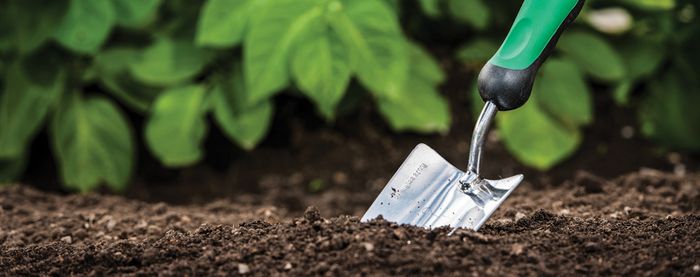Organic Fertilizer Sources for the Garden
Here’s a list of some organic fertilizers you may want to have on hand

There are many ways to supplement your garden with the NPK nutrition that it needs—naturally. Here are some of the organic fertilizers that you may want to have on hand.
Organic nitrogen sources
- Animal manure. You’re interested in manures that come from cows, rabbits, horses, sheep, horses, alpacas, llamas, and chickens, not animals that primarily eat meat, such as dogs or cats—that’s a no-no. Manure from meat-eaters can contain harmful pathogens that you really don’t want to come into contact with. Usually manures are composted before they’re used in gardens, but some, such as rabbit manure, don’t need to be. Others, such as cow manure, will burn your plants if not composted first. And if you can get your hands on some bat guano (bat poo), this stuff is nitrogen gold.
- Worm castings. They don’t have to be pure castings, of course. Vermicompost is ideal. Plus, it’s a super-duper soil conditioner.
- Alfalfa meal. Not only does alfalfa offer a big bang of nitrogen, but it’s also a terrific organism activator for soil. So I toss some into my compost too. Use alfalfa meal on the plants that are gluttons for food, like corn. As usual, I like to use what I have on hand not only to save time but also to save money. Because I have rabbits and buy their feed in large quantities, I periodically dump a bit at the base of my roses. My roses reward me handsomely for my generosity.
- Blood meal. It’s exactly what it sounds like—dried blood from animals. But it’s loaded with nitrogen.
- Fish meal or fish emulsion. This is seriously going to stink for a bit, but the smell doesn’t last, and your plants DIG it. I prefer fish meal to the emulsion only because the emulsion is said to wash away faster. But to each their own.
- Coffee grounds. Stop by your local Starbucks and snag a bag. Many coffee houses have the used grounds already bagged up and free for the taking. Use it to build soil structure and add some extra nitrogen.
- Grass clippings. Call me cheap (and many do), but green grass freshly mowed from the lawn is an excellent source of free nitrogen.
Organic phosphorus sources
- Rock phosphate. The good news about rock phosphate is that it lasts a long time because it breaks down very slowly. The bad news is that the phosphorus doesn’t become fully available to plants for a year or so. But you’ve got time, right? I mean, where’s the fire? Add it and forget about it.
- Bone meal. Again with the dead animals. Bone meal is animal bones that have been ground into powder. It’s high in phosphorus as well as calcium, but this is also a slow-releasing source. It’s great for promoting flower blossoms as well as encouraging good root growth.
- Colloidal phosphate. This is a soft-rock phosphate that is also called “colloidal calcium phosphate.”
Organic potassium sources
- Greensand. This stuff is mined from mineral deposits that came from the ocean floor. It’s not only high in potassium, but it’s good for general soil amending as well.
- Kelp meal. Another garden gift from the ocean, kelp meal is derived from dried seaweed. This is an exceptionally nice fertilizer, as it contains a lot of trace minerals and hormones that really give plant roots what they need to create strong plants. A popular organic fertilizing combination is kelp meal and fish emulsion.
- Granite meal. Granite meal is finely ground granite rock that promotes healthy plants by not only slowly releasing potassium but also by helping create soil structure and improving soil drainage.
As an all-around general soil amendment, there’s nothing better than compost for your soil. Composted organic matter adds all kinds of nutrients and makes them easily available to plant roots.
| Learn more
What Does NPK Mean? |






Comments
Log in or create an account to post a comment.
Sign up Log in